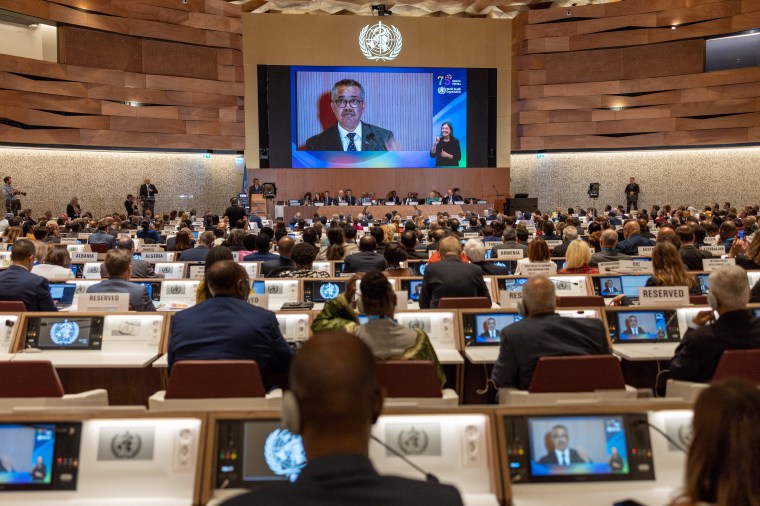Taipei, May 22, 2024 – The World Health Organization should allow all journalists to cover the organization’s annual decision-making meeting, the World Health Assembly, and issue press accreditation to Taiwanese media outlets, the Committee to Protect Journalists said Wednesday.
On May 9 and 10, after submitting a request for press accreditation to cover the World Health Assembly in Geneva, Judy Tseng and Tien Hsi-ju of the Taiwan public wire news outlet Central News Agency received a message from the United Nations’ press accreditation unit asking the two journalists to provide an “official Chinese passport in accordance with UN policies and General Assembly resolutions,” according to the news agency.
Tian and Tseng both resubmitted their Taiwanese passports, but the status of their applications are pending. The WHO, an agency of the UN, currently does not recognize Taiwan as a country due to tensions with China.
“A journalist’s nationality should not determine their eligibility for press accreditation to cover one of the most important conferences relating to global health issues in the world,” said Iris Hsu, CPJ’s China representative. “WHO and the United Nations should not be complicit in China’s relentless effort to block Taiwanese journalists from reporting on crucial health policy-making.”
Last year, Tseng and Tien were accredited to cover the annual gathering but were later denied entry by United Nations officials, and told that they could not cover the event because they are Taiwan passport holders, according to a CPJ report.
The International Federation of Journalists and the Association of Taiwan Journalists both called on the United Nations and the World Health Organization (WHO) to grant access to journalists and media workers without discriminating against their nationality.
Central News Agency’s editor-in-chief Chris Wang told CPJ in an email that the “WHO’s insistence on CNA reporters’ submission of PRC passports is not only a blatant disregard of political reality that Taiwan is never a PRC territory but also a betrayal of the institution’s ultimate mission of pursuing health for all mankind,” Wang wrote. “The CNA believes the people of Taiwan deserve a place and meaningful participation in the WHO. It also maintains that it has the right to report WHO matters and support 24 million Taiwanese people’s right to know.”
WHO communications officer Amna Smailbegovic told CPJ in an email that the accreditations for press coverage of the World Health Assembly are issued by the UN Office at Geneva and asked CPJ to contact their information service officers.
The UN Office at Geneva’s information service told CPJ in an email that “according to the rules of the United Nations, individuals applying for accreditation must represent bona fide media organizations, formally registered as a media organization in a country recognized by the United Nations General Assembly” and that “journalists must present a valid passport from a State recognized by the United Nations General Assembly.”
